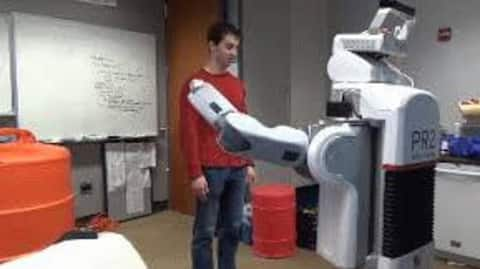Scientists develop robots to hug humans
What's the story
Researchers have developed a humanoid robot called "HuggieBot" that gives hugs to humans. Scientists are gauging if HuggieBot can offer the same comfort as a human hug and through it, ultimately aim to measure how much emotional support can robot hugs provide. The newer versions of the robot will eventually be programmed to better comfort people.
Details
General consensus: HuggieBot's hugs are nice
In a preliminary test, HuggieBot gave 30 participants dozen hugs each that varied in duration and firmness. Participants were initially a little wary but enjoyed the hugs in general. Some said that Huggiebot was "nicer to hug" than was anticipated. The humanoid stands as tall as an average person, weighs 450 pounds, and can be configured to be extra soft using foam and polyester.
Health Benefits
Hugs can relieve stress, even common cold!
"We were interested in enabling robots to hug because of how common hugs are in daily life and because of their numerous health benefits," said lead researcher Alexis Block from Germany. According to studies, hugs can reduce stress and blood pressure. In fact, in 2015, a study concluded that frequent hugs can reduce symptoms of the common cold as well.
Mixed Reactions
Expert feedback on HuggieBot
"There is a demand for things that hug or mimic affective touch, so why not use a robot?" Tony Belpaeme, a robotics professor at Plymouth University, England, said. However, Cindy Bethel, director of Robotic Systems Lab at Mississippi State University, said, "The dangers of teaching a robot to hug maybe that people become too emotionally connected to the robot and become dependent on it."
Quote
The goal isn't to replace, but supplement human hugs
"We are advocating for this technology to be used as a complement to other people, in situations where it is difficult or uncomfortable to get the support a person needs or wants from another human, not as a substitute for human hugs," Block said.
